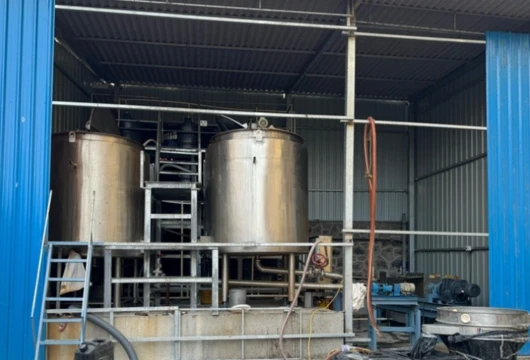India’s First Shrimp Shell Biorefinery Sets a New Sustainability Standard
In a remarkable advancement for India’s seafood industry, the ICAR-Central Institute of Fisheries Technology (ICAR-CIFT) has supported the establishment of the country’s first shrimp shell biorefinery. Spearheaded by Longshore Technologies Private Limited in Maharashtra, this initiative marks a significant step toward sustainable waste management in the fisheries sector by converting shrimp processing waste into valuable by-products.
Dr. George Ninan, Director of ICAR-CIFT, emphasized that the project exemplifies the institute’s commitment to developing scalable and industry-driven solutions. “Our goal is to bridge scientific research with industrial applications, ensuring that sustainable technologies not only mitigate environmental impact but also foster entrepreneurship and job creation,” he stated.
For decades, shrimp waste has been considered an environmental challenge in India’s seafood processing industry. However, the vision of ICAR-CIFT and Longshore Technologies is changing this perception by demonstrating shrimp shells’ economic and ecological value. This pioneering biorefinery converts shrimp waste into high-demand products such as chitin, chitosan, and shrimp protein hydrolysate—ingredients widely used in agriculture, pharmaceuticals, and cosmetics.
Shrimp Shell Biorefinery Revolutionizes Sustainability
This initiative aligns with the principles of the circular economy, where waste from one process is transformed into raw material for another, reducing landfill pollution and maximizing resource efficiency. The biorefinery minimizes environmental waste while unlocking commercial opportunities, setting a benchmark for similar sustainable ventures nationwide.
The journey of this breakthrough began in 2020 at ICAR-CIFT’s Veraval Research Centre when Amey Naik, a young entrepreneur and graduate of EDII Gujarat, recognized the untapped potential of shrimp waste. With guidance from ICAR-CIFT scientists, he explored chitin- and chitosan-based product development, leading to a technology transfer agreement with ICAR-CIFT, Kochi.
From Research to Reality
ICAR-CIFT, renowned for its leadership in fisheries post-harvest technologies, was crucial in optimizing eco-friendly methods to extract high-quality proteins and biopolymers from shrimp shell waste. These advancements align with global sustainability efforts and position India as a leader in waste valorization within the seafood industry.
Between 2022 and 2023, a dedicated scientific team from ICAR-CIFT, led by Dr. Bindu J., Head of the Fish Processing Division, and Dr. Elavarasan K. from the technology development team, worked closely with Naik to refine processes and conduct pilot-scale trials. Co-developers Dr. Renuka V., Dr. Jeyakumari A., and Dr. Tejpal C.S. significantly optimized extraction techniques and fostered industry collaborations. Key partnerships with the Marine Products Export Development Authority (MPEDA) and chitin manufacturers further accelerated the project’s success.
Scaling Up for a Sustainable Future
Today, Longshore Technologies Pvt. Ltd. in Mumbai processes approximately two tons of shrimp shell waste daily, generating shrimp protein hydrolysate, chitin, and chitosan. This biorefinery operates with an annual processing capacity of 400 tons of shrimp waste, directly employing seven individuals and targeting a turnover of ₹25 lakhs.
The economic benefits extend beyond direct revenue. By transforming shrimp shells into valuable bio-based products, the initiative enhances India’s seafood industry’s competitiveness, reduces dependency on synthetic alternatives, and promotes environmentally responsible business practices. With growing demand for natural and sustainable ingredients in multiple sectors, this venture is well-positioned for expansion.
A Model for the Future
ICAR-CIFT’s collaboration with Longshore Technologies exemplifies how scientific innovation can drive Sustainability while creating economic opportunities. This biorefinery model has the potential to be replicated across India’s seafood hubs, reducing industry waste while generating valuable bio-products.
The success of India’s first shrimp shell biorefinery marks a transformative moment in the nation’s sustainability journey. With ongoing support from research institutions, policymakers, and entrepreneurs, the initiative sets a precedent for responsible resource utilization and waste-to-value transformation in the seafood industry. As Sustainability takes center stage, India is poised to lead the way in circular economy innovations for fisheries and beyond.
For more in-depth analysis and inspiring climate news, click here.

